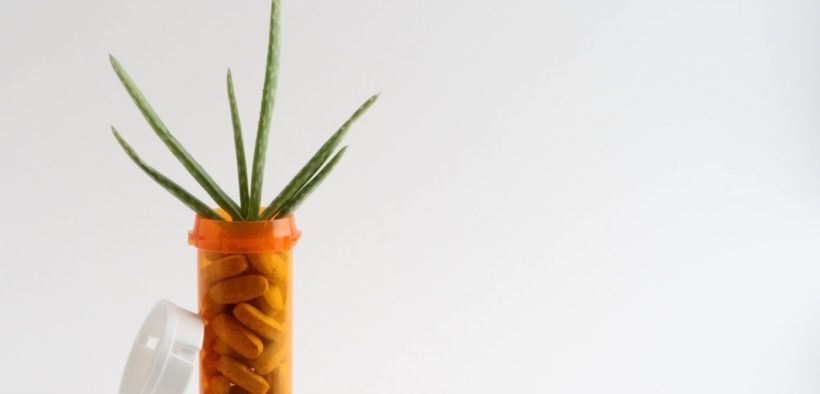No Alternatives

A groundbreaking study in the US finds that a third of cancer patients take complementary medicine for cancer care, and its hidden pitfalls
By Christina Tom Jose
Findings of a recent study by JAMA Oncology reveal that a third of cancer patients rely on alternative medicine while undergoing treatment. The most popular methods found were yoga, acupuncture, meditation, herbal medicine and supplements. Of these, herbal supplements were named as the most commonly used medicine, closely followed by yoga, tai chi, and massage.
Complementary and alternative medicine is used to refer to those therapies that people resort to in addition to, or sometimes, instead of, traditional medical care. There are several claims floating in the digital space that alternative medicine, especially herbal supplements, can prevent, and even cure, cancer and other diseases. However, these claims are often based on little or no scientific evidence, though some therapies have been found to help bring down certain symptoms and side effects of treatment.
The research, conducted among 3,100 participants in the US, also uncovered that 29% of those who do use complementary medicine refrain from telling their physicians about it, saying that they didn’t feel the need to tell their doctors, or because the doctors didn’t ask them. “Unless we know what’s in them, I would recommend patients avoid using them during radiation. There is a concern that very high levels of antioxidants could make radiation less effective,” says Dr. Nina Sanford, the radiation oncology specialist who headed the study. Dr. Sanford says patients must share details of alternative medicines they take, as they could help determine their potential interference and impact on conventional therapy, be it positive or negative.

“MOST PATIENTS TAKE ALTERNATIVE MEDICINES AND DO NOT INFORM THE PHYSICIAN, UNTIL VERY LATE. HERBAL MEDICINE IS WHAT IS MOST COMMONLY TAKEN HERE. I WOULD SUGGEST THAT PATIENTS DO NOT TAKE SUCH MEDICINES ALONG WITH ALLOPATHY. IF NECESSARY, THEY CAN TAKE IT AFTER COMPLETING CHEMOTHERAPY.”
Dr Boben Thomas Paediatric Oncologist
According to Cancer Research UK, there are diverse reasons why patients often prefer alternative medicine to conventional medical care. Some patients turn to these therapies simply because they seem more natural and less toxic. Some people also benefit from the time and counsel of complementary therapists, sometimes even the comfort of touch from a massage therapist. Most patients turn to such therapy, looking for that definite ‘cure’ to cancer. This notion that cure lies outside the conventional medical care system is fed to patients in the form of baseless claims, often made by practitioners of alternative medicine themselves, in hopes of promoting their trade.
People also take complementary medicine because it makes them feel better, thus helping them cope better with the disease. Meditative and relaxation therapies, for instance, are focused more on reducing stress, relieving anxiety and bringing an overall sense of health and well-being. Many healthcare providers also stick to the opinion that positive emotions can help improve health significantly. “Although some of these practices, like yoga and meditation, can certainly be helpful, I would never recommend that my patients do this instead of engaging in conventional cancer care,” says Dr. Sanford.
Though the survey focuses mainly on cancer patients in the US, the situation is no different in India. Here, it is a common phenomenon among the rural population and in urban areas as well. “Potentially curable patients often waste their time with alternative medicine, which is not based on any scientific evidence or medical guidelines. Later, they return with a more advanced form of the disease,” says Dr. Satish Sonawane, oncosurgeon based in Ahmednagar, Maharashtra. He adds that some complementary medicines do work very well in boosting immunity. “More than conventional or alternative medicine, integrative medicine can play a vital role in the management of these patients. Ultimately, a patient-centric approach is important for better outcomes,” he says.
The research, conducted among 3,100 participants in the US, also uncovered that 29 percent of those who do use complementary medicine refrain from telling their physicians about it, saying that they didn’t feel the need to tell their doctors, or because the doctors didn’t ask them
Dr. Boben Thomas, a pediatric oncologist from Kerala, also agrees. “Most patients take alternative medicines and do not inform the physician, until very late. Herbal medicine is what is most commonly taken here,” he says, further solidifying the study’s findings. “I would suggest that patients do not take such medicines along with allopathy. If necessary, they can take it after completing chemotherapy.”
Though doctors are cautious about using herbs and other supplements, they have a more open approach to meditation and yoga, because they help patients cope, without any direct interference with treatment. “We strongly advise patients to stay active and engage in exercise during treatment. A common side effect of radiation is fatigue. I let the patients know that the ones who feel the most fatigue are the ones who are the most sedentary and that those who are exercising e are the ones who frequently have the most energy,” says Dr. Sanford.
There is growing concern when patients continue to keep doctors in the dark regarding the intake of herbal medicines and supplements. Certain antioxidants like vitamin A, C and E could even protect cancer cells from being damaged, making radiation and chemotherapy counterproductive. It is essential, therefore, that each patient consults with his/her doctor before trying any new treatments or medicines.
Also read about
















